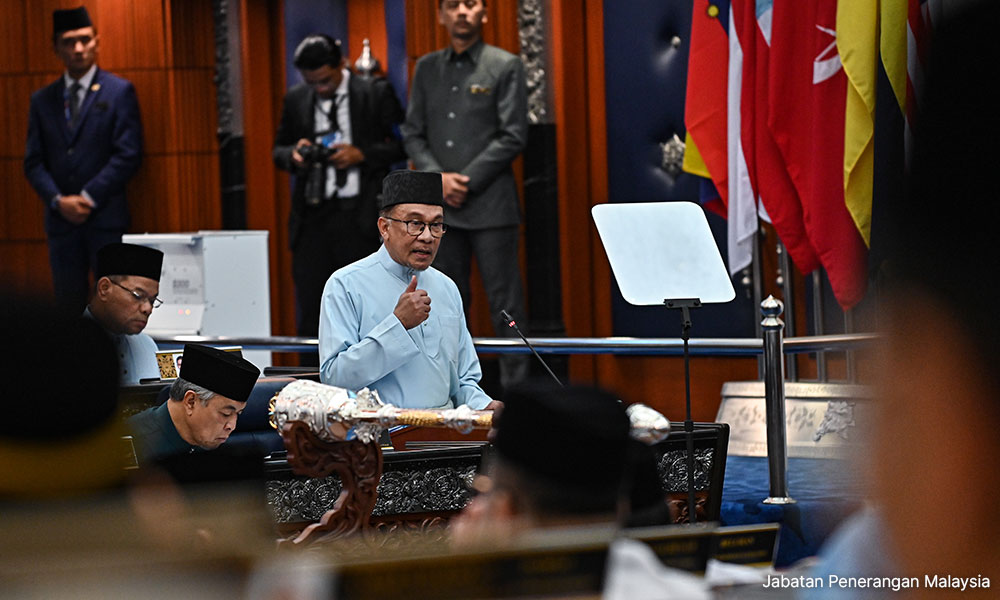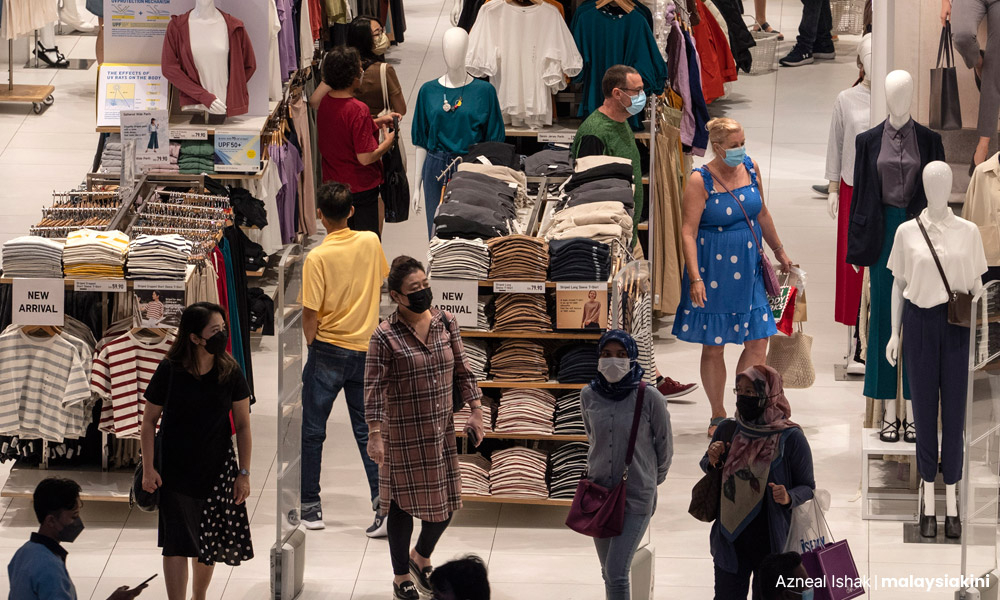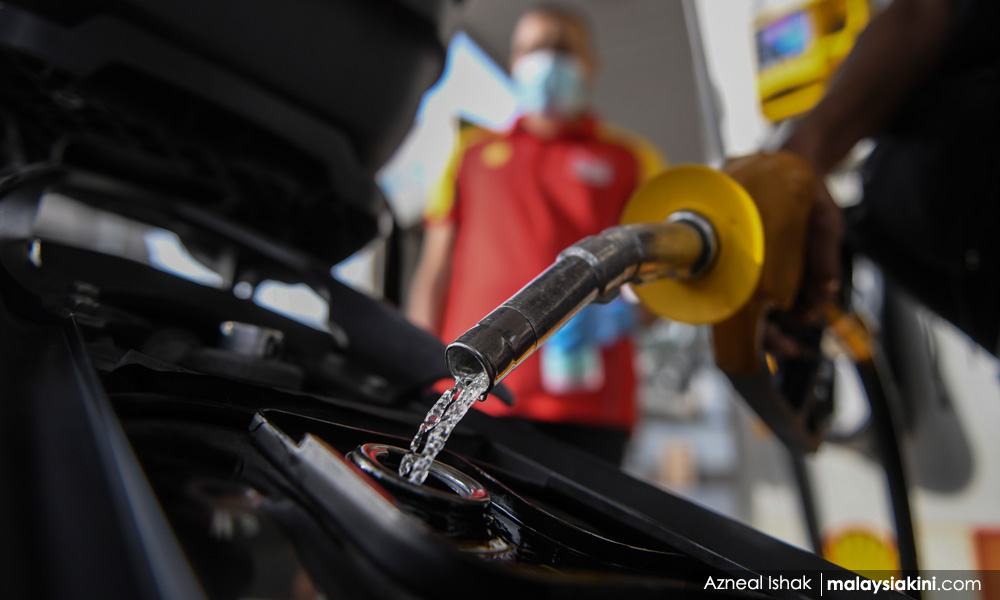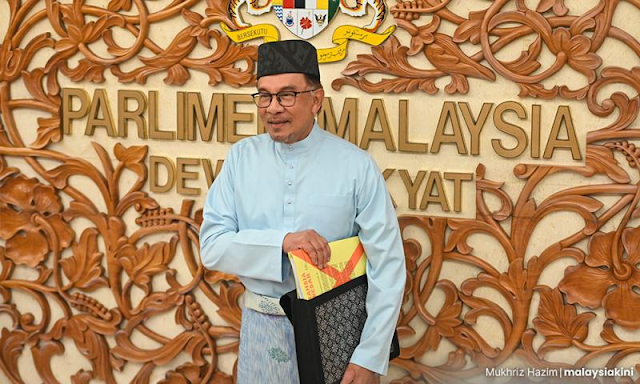Overall, if people expected Prime Minister Anwar Ibrahim to come up with a bold, imaginative budget to start the long process of economic and societal reform in the country, he disappointed them terribly.
After months of speculating over what exactly he would be doing, much faith was put in the budget as a compass.
But it set no new directions, was bland, insipid even, but benign, and managed to tiptoe around all the major issues - offering no solutions to serious problems facing the country.
It is a dangerous one too for tumours of the economic and societal kind like medical tumours if ignored long enough, turn from benign to malignant and eventually metastasise to affect the whole body - by which time it becomes difficult to treat and may even be a case of too little too late.
By playing too safe - and the only reasons for that must be those two dreaded words called “political expediency” and the need to try and satisfy everyone ahead of the forthcoming state elections - Anwar is basically endangering the health of the country.
By trying to satisfy everyone, he satisfies none and hurts everyone.

At this stage in our cycle of growth and development, there are many serious problems facing Malaysia, as Anwar correctly pointed out in the first part of his speech. But his policy and fiscal response to these serious problems are sorely lacking and extremely inadequate.
Let’s take some of the more serious ones in turn.
Trillion-ringgit national debt
Yes, it's correct to say, as Anwar did, that he inherited the debt but one must realise and accept that a huge part of the debt build-up is due to reflating measures following the onset of Covid-19.
At least, Anwar got the figures right. Debt as measured internationally is RM1.2 trillion, but including contingent liabilities, all of which may not materialise, it comes up to RM1.5 trillion.
The question is what is the government going to do about it? It’s not enough to say that debt as well as the interest payments associated will reduce, how is the debt going to be reduced?
The only way that can be done is to reduce expenditure and raise revenue, which takes us to the next point.

Raising revenue
The only sustainable way to raise revenue is to increase and widen taxes, and to come up with conditions for people to make more money - economic growth which will increase tax revenue. There are no significant measures announced for either.
Two measures announced are actually laughable - a tax on luxury items and capital gains on the sale of unlisted businesses.
If you put extra taxes on items like watches and jewellery, the opulently wealthy who travel a lot will simply buy them overseas and bring them back on their wrists, necks, ankles, lapels and in their pockets and handbags. Tourists won’t spend their money here because they can buy more cheaply elsewhere.
Thus it will strike a blow to our own retailers. Besides, you put quality goods beyond the reach of most people. Witness for instance the large amount we pay for cars costing a fraction in other countries.
And why tax gains on the sale of unlisted businesses but keep gains on the sales of shares in listed companies untaxed?
Capital gains tax on listed shares, done routinely throughout the world, helps to gain billions in revenue while also allowing a check and balance on those who claim their wealth came from stock market gains.
Who is being protected by this silly move to tax gains on unlisted businesses while keeping the exemption on gains for listed shares?
The elephant in the room is of course the Goods and Services Tax (GST), which as structured in Malaysia previously taxes consumption but has over 200 essential items exempted and therefore, has minimal impact on the poor.
The undeclared reason - politics – and not inflation because the GST can be set at a rate which is tax neutral for the time being at least, a process which will ensure the reduction of tax evasion because of declarations that have to be made to enable tax refunds.
But even before the budget announcement, Anwar prematurely declared it won’t be introduced. Why?
Subsidy rationalisation
After all that talk about targeted subsidies, nothing materialised as far as this is concerned, except for some fairly small concessions to the lower-income group, both in terms of lower taxes and grants.
Oil and energy prices continue to be heavily subsidised with no attempt to move them towards market rates and then utilise some of the savings to benefit disadvantaged groups who may be affected by increased energy costs.
Instead the rich, who consume much more energy than the poor, continue to be subsidised by low energy prices. Such subsidies, not just for oil but other products, cost the country a huge RM60-80 billion a year, according to official figures.

This is a rather serious area of expenditure waste because instead of, say, subsidising the bottom 20 percent who may need to be protected against high energy prices, the entire spectrum is being helped - a major structural flaw which has still not been addressed after decades.
Reducing procurement costs
Anwar talks about this a lot but the truth is many of the contracts engaged in are not easily repudiated because they are signed and sealed.
The government, in many cases, will have to prove corruption to repudiate these contracts.
As with the previous Pakatan Harapan government, the unity government is going to find that procurement costs are not easily reduced without actually lowering the specifications and scope of works - which means you may be getting an inferior product.
Where are the measures to fight corruption?
While Anwar has made huge political capital out of fighting corruption, the measures on the ground are woefully inadequate. You need a major overhaul of the MACC for this, including a change on the top as the current head has been tainted by serious allegations.

You need a slew of measures at government departments to ensure that procurement follows proper measures for instance. But we have heard of none so far. The budget does not sufficiently address the issue of rampant corruption.
Measures to foster economic growth
I could not find anything to improve labour productivity, address the problem of excessive graduates, poor pay for technicians and manual workers or their lack even, measures to improve wages and the quality of life - and provide equal opportunity on a sustainable, long-term basis for everyone.
Grants and aid are temporary but necessary measures. However, the whole country needs to move to a state where everyone who wants to work is gainfully employed, properly trained and gets a fair living wage so that income equality is reduced.
What will the government do in these areas? We don’t know.
Overall, the budget is expansionary, the largest ever in terms of both operating and development expenditures.
That may be necessary to face a slowing economy but definitely more should have been done in the areas of new revenue generation and widening the tax net, and cutting expenditures - especially subsidy rationalisation.
In the absence of these, the so-called Madani budget is not only terribly disappointing but delays badly needed reformation to put the economy and the country on good footing.
Anwar must do better in the future. - Mkini
P GUNASEGARAM says that you need the courage of your convictions to bring about change.
The views expressed here are those of the author/contributor and do not necessarily represent the views of MMKtT.




No comments:
Post a Comment
Note: Only a member of this blog may post a comment.